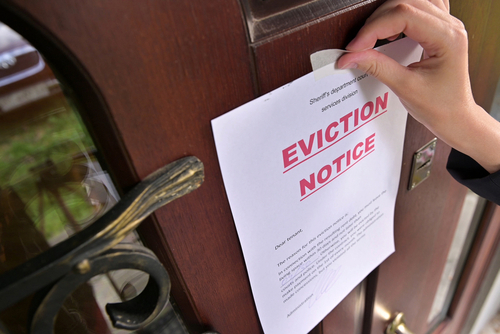Lately, landlords have been in the news–and not in a good way. Everyone knows that inflation has affected most people’s finances. However, some individuals think landlords are contributing to the housing crisis by raising rent, evicting tenants, and making affordable housing less attainable. In the video below, we discuss why people have issues with landlords, how to resolve certain issues, and why landlords are still important.
Contents of This Article:
- Why Do People Have Issues With Landlords?
- How to Resolve Issues With Landlords
- What Would We Do Without Landlords?
- Why Do We Need Landlords?
- Benefits of Third-Party Management for Owners
Why Do People Have Issues With Landlords?
Many people are following the trend of bashing money-hungry landlords for raising prices, changing requirements, and evicting more tenants. However, most landlords and Washington DC property managers don’t get the credit they deserve.
While some landlords seek to make their pockets bigger by exploiting desperate tenants, that’s not everyone’s goal. However, before we get into some of the main reasons we need landlords, it’s best to understand why some people are mad at them.
- Rent Increases- One of the most common issues with landlords is major rent increases–especially recently. Within the past year, rent prices are up around 5.5% in the U.S. With so many landlords raising rent significantly; it’s becoming harder for tenants to afford their bills. As such, it’s leading to frustration and financial strain, sometimes forcing tenants to find more affordable housing.

- Rising Eviction Rates- Another concern is the increase in eviction rates. Once the moratorium during the Covid-19 pandemic ended, eviction rates soared back to pre-pandemic levels. Unfortunately, some landlords participate in unjust evictions, retaliatory actions, or exploiting loopholes in rental regulations. As a result, homelessness rates are rising.
- For-Profit Investment Firms- The involvement of for-profit investment firms in the rental market has led to concerns. These large firms often prioritize maximizing profits. In turn, it can result in a lack of responsiveness to tenant needs, aggressive rent hikes, or neglecting necessary maintenance and repairs.
- Housing Shortage Issues- Housing supply has been an issue for several years. Many people can find affordable homes, forcing them to keep renting. In turn, landlords profit from consistent rental income, allowing them to expand and buy more housing. It’s a cycle that benefits landlords but makes homeownership more difficult for other individuals.
- Unfair Advantages- As stated above, landlords may have more opportunities, or unfair advantages, when it comes to the housing market. After all, many landlords simply buy homes and hire others to do the hard work, meaning they truly can make passive income just by being a homeowner. While on the other hand, construction workers, developers, architects, electricians, and other professionals put work into the properties to make them livable.
How to Resolve Issues With Landlords
If you’re a renter experiencing issues with your landlord raising rent, mistreating you, or neglecting their responsibilities, you can do a few things. After all, when you sign a rental agreement with your landlord, they must fulfill their obligations. Here are a few ways you can resolve issues with landlords.
- Understand Your Rights- It’s important to familiarize yourself with your rights as a tenant. Review local housing laws, regulations, and your lease agreement to understand your responsibilities. If necessary, seek legal aid or advice to help understand your rights and understand which steps to take next.
- Open Communication- If you’re having issues, start by addressing the issue directly with your landlord. You’ll want to clearly and respectfully communicate your concerns, outlining the problem and how it affects you. Provide specific details and any relevant evidence or documentation to support your case.
- Document Everything- You’ll want to document all communication with your landlord, including dates, times, and receipts of payments and conversations. This documentation can serve as evidence if further action is required.
What Would We Do Without Landlords?
Without landlords, the rental housing industry would look a lot different. For instance, more people may pursue homeownership as their primary housing option. However, one issue with this is that many people can’t afford it. As such, if people cannot afford to own a home, they’ll have to resort to other options.

One option that may be necessary is cooperative housing, where residents collectively own and manage properties. These models involve residents sharing responsibilities like maintenance, repairs, and decision-making, eliminating the need for a landlord.
If we didn’t have landlords, government-managed housing or community-based solutions may be more relevant. For instance, governments may provide more public housing units or implement subsidized housing programs to ensure affordable housing. Or, communities could develop initiatives to address housing needs.
The absence of landlords could also potentially impact the housing market in other ways. With a decrease in rental demand, there may be a shift in the availability and pricing of housing units. As such, home prices may stabilize or decrease due to reduced competition from investors in the market. However, the convenience and flexibility of rental housing is hard to beat. Next, we’ll go over why we still need landlords.
Why Do We Need Landlords?
Landlords play an essential role in the housing market and provide several benefits to tenants and communities. Here are some of the reasons why landlords are important.
- Housing Providers- Landlords own and manage rental properties, providing a crucial housing supply for individuals and families who prefer or need to rent rather than own a home. They offer a range of housing choices in various locations and price ranges, accommodating diverse needs and preferences.
- Property Management- Landlords or property managers handle the day-to-day management of rental properties. So, they’re responsible for lease agreements, rent collection, handling tenant concerns, and addressing maintenance requests. As such, it relieves tenants of these burdens and allows them to focus on their daily lives instead.

- Legal and Financial Responsibilities- Owning a home involves several legal and financial obligations. However, landlords handle everything related to property ownership and rental agreements, ensuring compliance with local laws and regulations. Additionally, they handle the financial aspects like property taxes, insurance, and mortgage payments to maintain the stability of the property.
- Stability and Long-Term Housing- Renting provides a flexible option for families and individuals needing temporary housing. Additionally, they contribute to housing stability by offering long-term rental options, allowing tenants to establish themselves in a new area while maintaining consistent housing.
- Economic Contribution- Landlords that invest in properties often contribute to the local economy. After all, property ownership and management create jobs in maintenance, repairs, and property management services. Additionally, they pay property taxes, supporting local government services and development.
Benefits of Third-Party Management for Owners
Although many people have issues with landlords controlling the housing market, not everything you hear is applicable. On the one hand, some large firms buy hundreds of properties, taking them from potential homeowners. However, several smaller landlords use real estate as a retirement fund or a way to make income on the side.
That said, being a landlord can be an excellent way to contribute to the economy and provide flexible housing for those that need it. However, the more properties you own, the harder they become to manage. As such, many busy landlords look to third-party management to handle the day-to-day tasks of owning properties.
Need More Advice? contact us today!
Bay Property Management Group offers comprehensive rental management services, so you can focus on your business instead. So, we’ve got it covered whether you need help marketing properties, performing maintenance, finding and screening tenants, or collecting payments. Contact BMG today to learn more about our Baltimore, Philadelphia, Northern Virginia, and Washington, DC management services.
